Travel With Us
"Life is either a daring adventure or nothing at all."
5 Easy Facts About Why Drug Addiction Is Bad Shown
They can make it harder to access drugs, maybe by never ever bring cash with them. People will put barriers in front of themselves. True, some people choose they can't do it by themselves and choose to enter into treatmentthat's taking matters into one's own hands, too. If you're currently in treatment, you've made a big step.
You get a great deal of assistance. You get direction in formal relapse prevention therapy. You may get methadone for withdrawal and medications for an underlying psychiatric problem. I'm vital of the basic view promoted by the National Institute on Substance abuse that dependency is a brain illness. Naturally, every behavior is moderated by the brain, however the language "brain illness" brings the connotation that the afflicted person is helpless before his own brain chemistry.
It also ignores the enormously essential truth that addicts use drugs to assist them cope in some way. That, as destructive as they are, drugs also serve a purpose. This acknowledgment is extremely important for creating tailored therapies. Individuals who come to treatment tend to have concurrent psychiatric disease, and they also tend to be less https://diigo.com/0jwmfy responsive to treatment.
This is called the "medical impression," and it uses to all medical conditions. It describes a propensity to think that the clients you see in a medical setting completely represent all people with that condition. It's not true. You're not seeing the complete universe of people. I question it.
The only drugs that are neurotoxic are alcohol, methamphetamine, probably MDMA [euphoria], and some inhalants. * Drug can cause micro strokes. That's mental retardation. Yes, addiction alters the brain however this does not doom people to utilize drugs permanently. The most long-term modification is memories. Some people have more powerful memories and they are more cue-reactive [more reactive to stimulus that triggers the reward pathway].
For some individuals the dependency and withdrawal will be more intense through genetically mediated problems. Those people have a more difficult time stopping. One would wish to explore the possibility of underlying psychiatric problems. The grandiosity, the loose associations, the jumbled circulation recommend a believed disorder. Heavy, heavy substance abuse might trigger that.
To try to make a good medical diagnosis, whatever ongoing drug usage there is would have to stop. After the withdrawal stage is resolved clinicians would then require to see if a hidden idea or state of mind disorder persisted. That would aid in parsing just how much of a confusing clinical photo is because of substance abuse and how much is because of a primary mental illness.
Drug Addiction How To Help Someone for Beginners
Compound abuse condition, or drug dependency, can be specified as a progressive illness that triggers people to lose control of making use of some compound despite worsening consequences of that usage. Compound use disorder can be life-threatening. Dependencies are not problems of willpower or morality. Dependency is a powerful and complex illness.
The drugs alter the brain in a way that makes quitting physically and mentally tough. Treating dependency frequently requires long-lasting care and treatment. Drugs that are frequently misused consist of: Alcohol. Club drugs, like GHB, ketamine, MDMA (ecstasy/molly), flunitrazepam (Rohypnol). Stimulants, such as drug (including crack) and methamphetamine (meth). Hallucinogens, including ayahuasca, D-lysergic acid diethylamide (LSD), peyote (mescaline), phencyclidine (PCP) and DMT.
Marijuana. Opioid pain medication such as heroin, fentanyl, oxycodone, hydrocodone, codeine and morphine. Prescription drugs and cold medications. Sedatives, hypnotics and anxiolytics (anti-anxiety medications). Steroids (anabolic). Artificial cannabinoids (K2 or Spice). Synthetic cathinones (bath salts). Tobacco/nicotine and smokeless cigarettes (e-cigarettes or vaping). While these Additional reading drugs are really different from each other, they all highly trigger the dependency center of the brain.
People feel intoxicated after utilizing drugs of abuse. In time, the brain is changed by drugs of abuse. The brain becomes desensitized to the drug of abuse so that more of the drug must be utilized to produce the very same effect. As the person consumes more, drugs start to take control of the individual's life.
For lots of people, social, family and work commitments are up to the side. The person with SUD begins to seem like something's incorrect if she or he isn't under the impact of the substance. They may become taken in with the need to recapture that initial feeling. Anybody can develop a substance use disorder.
You might be more vulnerable to drug usage due to: The person's hereditary makeup, gender, ethnicity and psychological health issues may raise his/her danger for establishing a dependency. About two-thirds of individuals in dependency treatment are guys. Specific ethnic cultures are at higher danger for compound abuse disorder. This holds true for Native Americans.
For example, tension, peer pressure, physical or sexual abuse and early exposure to drugs can raise the threat. Teenagers who start taking drugs are especially at risk. The parts of the brain that manage judgment, decisions and self-discipline are not fully developed. Teenagers are more most likely to engage in dangerous behaviors.
Getting The What Drug Addiction Does To A Family To Work
Substance use disorder and alcohol use disorder are the leading reasons for avoidable illness and sudden death. Research study has actually shown that about 1 in 9 Americans utilizes illicit drugs (about 11% of the population). The most typically misused drugs are cannabis and prescription medications. Drugs affect the brain, particularly the "reward center" of the brain.
Typically, these rewards originate from healthy habits. When you hang out with a loved one or consume a scrumptious meal, your body releases a chemical called dopamine, that makes you feel satisfaction. It ends up being a cycle: You look for out these experiences because they reward you with excellent sensations. Drugs of abuse send out enormous surges of dopamine through the brain, too.
That can develop an unhealthy drive to look for pleasure from the drug and less from healthier enjoyable experiences. The cycle focuses on seeking and consuming drugs to get that pleasant feeling. Dependency to drugs alters the brain over time. It affects how the brain works and even the brain's structure.
The very first use of a drug is a choice. But dependency can establish, developing a very hazardous condition. Drugs impact your decision-making capability, consisting of the decision to stop substance abuse. You might know there's an issue however not able to stop. With addiction, stopping drug use can be physically unpleasant.
Individuals may start using drugs for several reasons. They may: Delight in the pleasurable experience. Wish to alter or blunt their unpleasant sensations (which neurotransmitter is involved in drug addiction?). Wish to improve their efficiency at work, school or sports. Wonder or give in to peer pressure. Symptoms of drug dependency consist of: Bloodshot eyes and looking tired.
Modifications in physical appearance, such as Rehab Center having a bad complexion or looking ungroomed. Craving drugs. Trouble finishing jobs at work, school or house. Participating in dangerous behaviors, regardless of understanding negative consequences (such as driving while impaired or having vulnerable sex). Inability to reduce or control substance abuse. Problems with money.

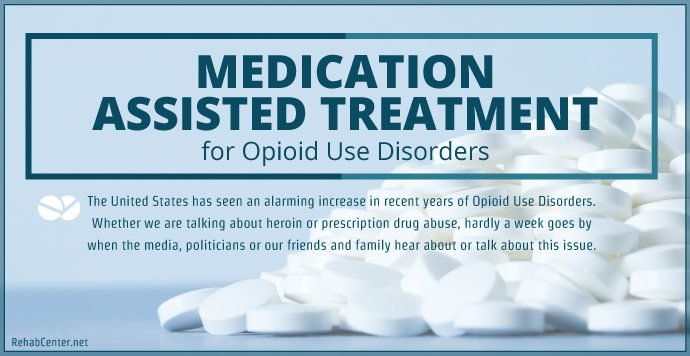
Last evaluated by a Cleveland Center doctor on 09/03/2020. Get helpful, handy and relevant health + health info Cleveland Center is a non-profit academic medical center. Advertising on our website helps support our objective. We do not back non-Cleveland Clinic items or services. Policy.
The How To Help A Person With Drug Addiction Diaries
Overdose Death Rates. By National Institute on Drug Abuse (NIDA). Glasscote, R.M., Sussex, J.N., Jaffe, J.H., Ball, J., Brill, L. (1932 ). The Treatment of Drug Abuse for individuals like you ...: Programs, Issues, Prospects. Washington, D.C.: Joint Info Service of the American Psychiatric Association and the National Association for Mental Health.
13 Archived 2011-09-27 at the Wayback Machine American Psychiatric Association (1994 ). Diagnostic and analytical manual of mental illness (4th edition). Washington, DC. Hasin, Deborah S.; O'Brien, Charles P.; Auriacombe, Marc; Borges, Guilherme; Bucholz, Kathleen; Budney, Alan; Compton, Wilson M.; Crowley, Thomas; Ling, Walter (2013-08-01). " DSM-5 Requirements for Compound Usage Disorders: Suggestions and Rationale".
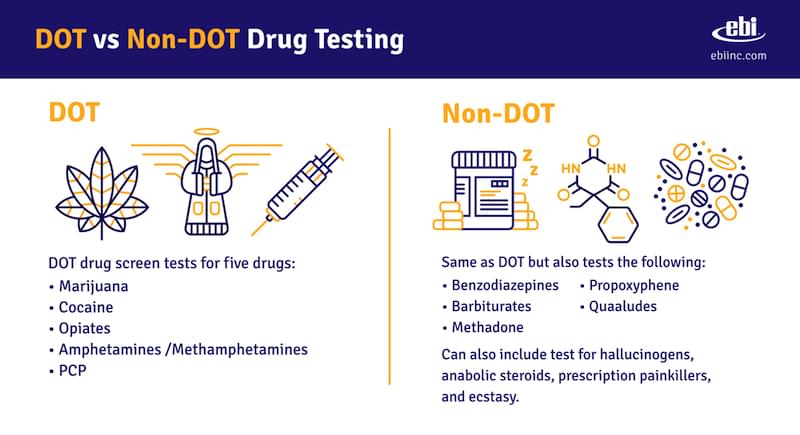
170 (8 ): 834851. doi:10. 1176/appi. ajp. 2013. 12060782. ISSN 0002-953X. PMC. PMID 23903334. "Diagnostic and Analytical Handbook of Psychological Conditions: DSM-5 (fifth edition) 2014 102 Washington, DC American Psychiatric Association 2013 xliv +947 pp. 9780890425541( hbck); 9780890425558( pbck) 175 $199 (hbcchvk); 45 $69 (pbck)". Reference Reviews. 28 (3 ): 3637. 11 March 2014. doi:10. 1108/rr -10 -2013 -0256.
" Drug supply and substance abuse". CMAJ. 168 (9 ): 1113, author reply 1113. PMC. PMID 12719309. Archived from the original on 2009-09-06. Wood E, Tyndall MW, Spittal PM, et al. (January 2003). " Effect of supply-side policies for control of illicit drugs in the face of the HELP and overdose epidemics: examination of an enormous heroin seizure".
168 (2 ): 1659. PMC. PMID 12538544. Bewley-Taylor, Dave, Hallam, Chris, Allen Rob. The Beckley Structure Drug Policy Programme: The Incarceration of Drug Culprits: A Summary. March 2009. Prieto L (2010 ). " Labelled drug-related public expenditure in relation to gdp (gdp) in Europe: A high-end good?". Drug Abuse Treatment, Prevention, and Policy.
doi:10. 1186/1747 -597 x-5-9. PMC. PMID 20478069. " NHS and Substance Abuse". National Health Service (NHS). March 22, 2010. Recovered March 22, 2010. " Office Tackling Drugs Changing Lives Drugs in the workplace". 2007-06-09. Archived from the initial on 2007-06-09. Recovered 2016-09-19. Thornton, Mark. " The Economics of Restriction". Owens PL, Barrett ML, Weiss AJ, Washington RE, Kronick R (August 2014).
Some Known Questions About Where To Get Help For Drug Addiction Australia.
HCUP Statistical Brief # 177. Rockville, MD: Agency for Health Care Research Study and Quality. Drachman, D. (1992 ). "A stage-of-migration structure for service to immigrant populations". Social Work. 37 (1 ): 6872. doi:10. 1093/sw/37. 1.68. Pumariega A. J.; Rothe E.; Pumariega J. B. (2005 ). "Mental health of immigrants and refugees". Community Mental Health Journal.
CiteSeerX. doi:10. 1007/s10597 -005 -6363 -1. PMID 16142540. S2CID 7326036. National Institute on Alcoholic Abuse and Alcohol Addiction. (2005 ). Module 10F: Immigrants, refugees, and alcohol. In NIAAA: Social work education for the avoidance and treatment of alcohol use conditions (NIH publication). Washington, D.C. Caetano R.; Clark C. L.; Tam T. (1998 ). "Alcohol consumption amongst racial/ethnic minorities: Theory and research study".
22 (4 ): 233241 - how drug addiction affects relationships. UNODC. " Understanding Substance Usage Amongst Street Kid" (PDF). Recovered 30 January 2014. Cottrell-Boyce, Joe Additional info (2010 ). " The function of solvents in the lives of Kenyan street kids: An ethnographic viewpoint" (PDF). African Journal of Drug & Alcohol Researches. 9 (2 ): 93102. doi:10. 4314/ajdas. v9i2.64142. Recovered 28 January 2014.
( 2008 ). "Compound abuse in performing musicians". Alcoholism: Journal on Alcoholism and Related Dependencies. 44 (1 ): 3742. 622145760. CS1 maint: numerous names: authors list (link) Zlotnick, C., Tam, T., & Robertson, M. J. (2003 ). "Disaffiliation, compound use, and exiting homelessness". Compound Usage & Abuse. 38 (36 ): 577599. doi:10. 1081/ja -120017386. PMID 12747398.
CS1 maint: multiple names: authors list (link) " Treatment Programs for Compound Mental Health Facility Use Issues Mental Health". mentalhealth. va.gov. Recovered 2016-12-17. McHugh, R. Kathryn; Votaw, Victoria R.; Sugarman, Dawn E.; Greenfield, Shelly F. (2018-12-01). " Sex and gender differences in compound usage disorders". Medical Psychology Evaluation. Gender and Mental Health. 66: 1223. doi:10.
cpr. 2017. 10.012. ISSN 0272-7358. PMC. PMID 29174306. Becker, Jill B.; McClellan, Michele L.; Reed, Beth Glover (2016-11-07). " Sex distinctions, gender and dependency". Journal of Neuroscience Research Study. 95 (12 ): 136147. doi:10. 1002/jnr. 23963. ISSN 0360-4012. PMC. PMID 27870394. Walitzer, Kimberly S.; Dearing, Ronda L. (2006-03-01). "Gender distinctions in alcohol and substance utilize regression".
The 7-Minute Rule for How Does Drug Addiction Start
If drugs like heroin, drug and alcohol couldn't trigger reliance and dependency, the issues of compound abuse and drug-related criminal activity might not exist. But in fact,. What makes sure drugs so sexy that even casual users appear to end up being addicted? The answer lies in the way these compounds affect your brain chemistry.
When you consume a liquor, inject heroin, take prescription pain relievers or snort drug, these substances modify the way your brain procedures chemicals called neurotransmitters. Each drug acts in a particular method to alter the brain's action to stimuli, however completion outcome is that the experience of utilizing the substance is so enjoyable, relaxing or stimulating that it triggers your internal benefit system, making you desire to repeat that experience again and once again.
By this time, you may be displaying addicting habits like: Compulsively seeking the drug Continuing to utilize the drug even though it's certainly causing harm to you or your loved ones Lying, stealing or doing other things that hurt your sense of stability in order to get the drug Taking unsafe dangers in order to acquire or use the drug We can address your concerns about drug addiction and assist you understand why it's so tough to give up, even when drugs are ruining your life.
To understand why drugs are addicting,. Physical and mental reliance and addiction aren't always the same thing. Wright State University defines reliance by: A physical reliance on the drug that results in withdrawal signs if you can't utilize the compound A state of tolerance that requires larger amounts of the drug in order to please your need for the substance Strong cravings for the drug that prompt relapse when you try to stop using or drinking The inability to manage just how much of the drug you utilize, no matter how much you desire to stop or suppress your routine Dependence does not always cause dependency, but it might be hard to inform the two conditions apart, and some addiction experts utilize the 2 terms interchangeably.

Drug dependency is often connected with repercussions that are harmful to the individual and society, like increased rates of injury, accidents and criminal offense. It's valuable to utilize the two terms individually when you're handling habit-forming discomfort medications or other addictive compounds that are used for medical functions. Although lots of people who take opioid discomfort medication regularly can end up being tolerant or reliant, they don't always display compulsive, addicting habits when it concerns getting or using the drug.
Alcoholics might plan to have only one or 2 beverages at a bar or celebration, then wind up consuming all night and into the early morning hours. What makes it so hard for some individuals to stop consuming once they begin, while others don't have problem sufficing off or preventing alcohol entirely? The response might lie in a combination of brain chemistry and genetics.
What Does What Does The Bible Say About Drug Addiction And Marriage Do?
Although medical research hasn't confirmed that alcoholism is inherited,. If you http://sergiohsic465.wpsuo.com/6-simple-techniques-for-why-drug-addiction-is-not-a-disease feel extremely relaxed, giddy, or material after having a few drinks, your brain cells are probably reacting to the increased production of chemicals that impact your state of mind. At the same time, alcohol impacts the frontal lobe of the brain, which is accountable for feelings, judgment and spontaneous habits.
The Ultimate Guide To Is Most Likely To Be Successfully Treated By
internet can connect you with the resources, professional services, and treatment options available in your area. Contact us today and discover a world totally free from dependency in recovery.
There are lots of myths that have actually continued to circulate and grow over the years referring to what the specific reason for addiction is. Sadly, a lot of them paint people suffering from addiction in a quite unfavorable light. Depending on Substance Abuse Center drugs or alcohol does not make someone an enemy; the individual merely has an illness.
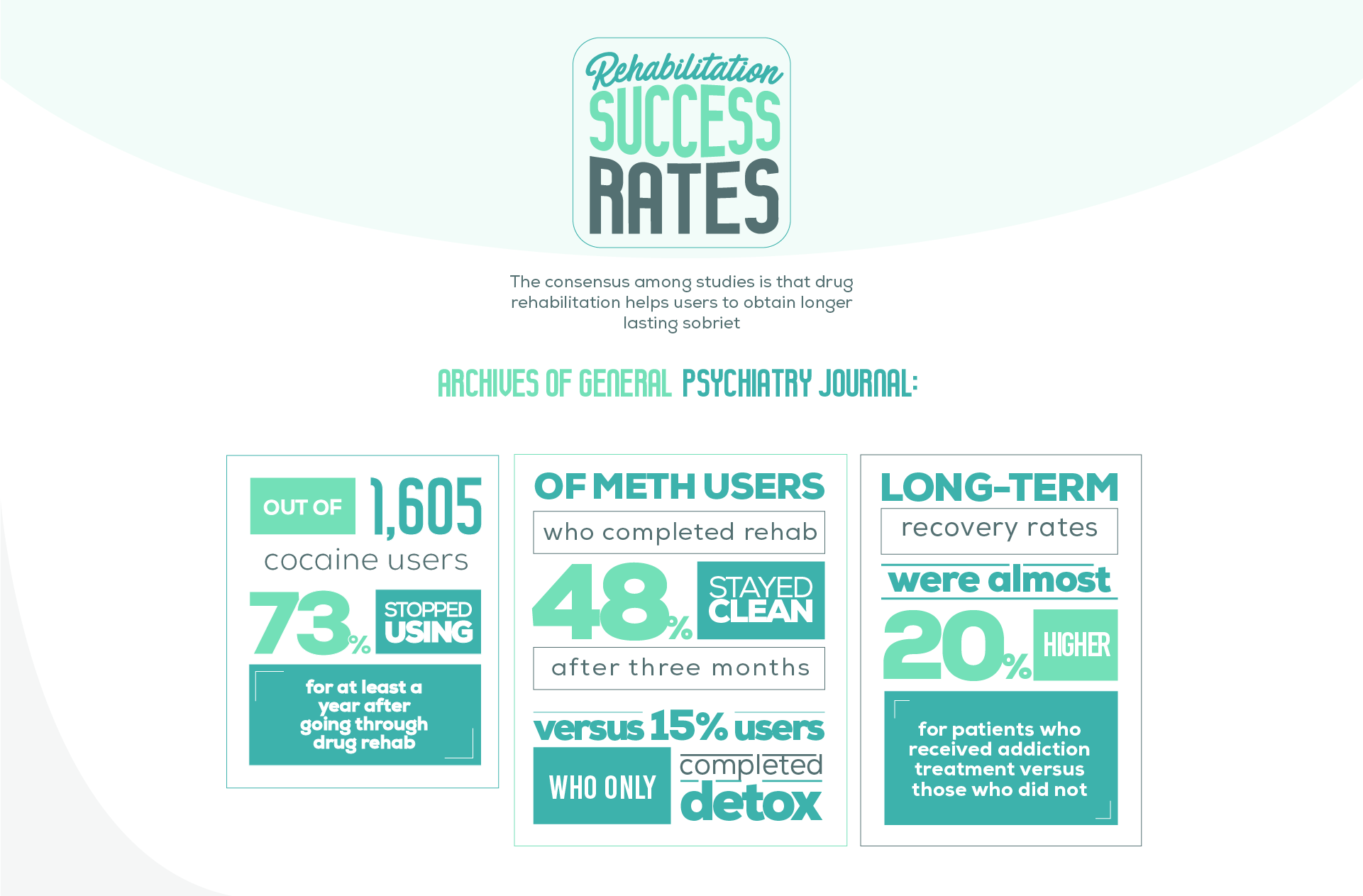
Yet, the majority of these individuals never ever wind up hooked on the substances they mess around with in their formative years. Among every 10 adults who consume excessively, just one fits the requirements for alcoholism, per the Centers for Illness Control and Prevention. So what is the distinction in between these groups of people, and why do some people establish dependency while others do not? Dependency is both a physical and mental illness. Often, abuse is faced on a routine or perhaps everyday basis, and so substance abuse can rapidly turn into a dependency in this case. Many individuals try drugs once as an experiment and end up finding blissful feelings from these substances. The chemical reactions in between the drug and the brain cause a release of dopamine, which is pleasurable to lots of individuals.
It may make them feel more unwinded, self-confident, in control, or any variety of other results. Teens and young people often deal with sensations of monotony or uniformity, as a lot of them do not yet have adult responsibilities such as careers, costs, greater education, households, and more. Substance abuse may appear like a hassle-free or amusing way to pass the time.
Since people are social creatures, it is essential for us to seem like we belong or suit. This can impact individuals of any age but is most prominent throughout teenage and early adult years. If others around them are using drugs, they may fear sensation excluded, or that they will not fit in.
Rumored Buzz on Is Most Likely To Be Successfully Treated By
For those who are around drugs, however haven't yet used them, they might hear positive feedback about specific drugs. They may become intrigued or thinking about their good friends' experiences, therefore they attempt specific drugs also. This isn't necessarily the result of the pressure of worry of not fitting in, but rather genuine interest and a desire to attempt something new.
This takes place in teens and even in grownups. Due to the fact that substance abuse is illegal or not socially acceptable, it actually drives certain individuals to desire to use them in order to rebel, stick out or be various. For some individuals, this might merely be a phase of disobedience and experimentation, or Find out more it may become an addiction.
Drug usage provides an incorrect sense of being in control of health, feelings or behaviors that lots of people like. They may feel as though when everything else around them is falling apart, they can depend on their compound usage to provide stability. Certain drugs may help to momentarily improve cognitive function, memory, and focus.
These are typically stimulants and other prescription drugs. For trainees or hectic experts, these kinds of drugs can seem like a practical solution. Other drugs, such as anabolic steroids, human development hormones or stimulants, are utilized to improve physical performance in professional athletes or those who are very physically active. Individuals frequently pick to utilize these types of drugs in order to contend or look a specific method.
Physicians may prescribe opioid painkillers to clients who are recuperating from surgical treatment and facing injuries or other medical scenarios. Left unmonitored, some people are prone to abusing these prescription medications due to the fact that of the high they offer. They may wind up getting connected accidentally and start finding methods to keep obtaining their prescription tablets.
The Main Principles Of How To Cure Drug Addiction
If they feel as though they can't associate with others or that they aren't comprehended by their peers, they may feel out of location. These sensations can result in low self-confidence or even depression over time. https://6044c32c997e6.site123.me/#section-607303884db18 This only additional intensifies a state of seclusion. In order to numb this solitude or vacuum, they use drugs to feel alive and forget about feeling isolated.
Drug usage and dependence have a number of consequences. Physical, emotional, social, monetary, and mental effects stop many individuals from continuing to utilize drugs or from utilizing drugs in the first location. Regrettably, regardless of the quantity of awareness surround the risks of substance abuse, there is still a lot of misinformation about it.
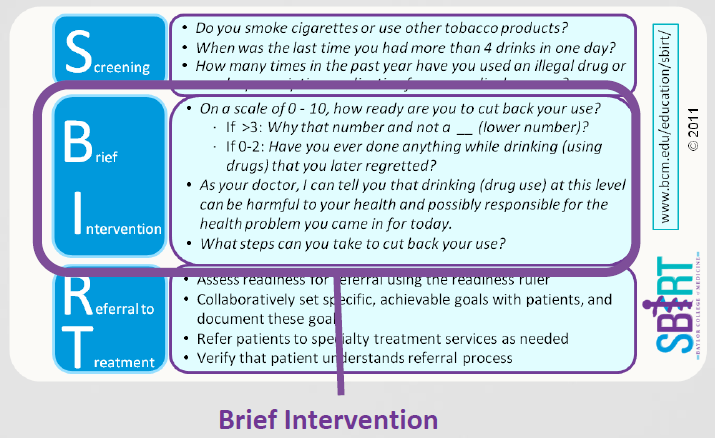
In addition, lots of people may see others use drugs and not deal with any health or other issues, therefore they believe that it will not injure them either. Many people have personality types that prefer pleasure principle. This means they search for ways to be pleased right away and in the short-term, as opposed to being satisfied by postponed satisfaction - what are some ways that healthcare professionals can decrease the risk of drug abuse and addiction?.
Drug use provides instant gratification in terms of physical, psychological, and emotional feelings. how to prevent drug addiction. It's also typically a social act, which even more boosts feelings of satisfaction. With the increased convenience of the internet and contemporary communications, it's relatively easy for individuals to get drugs today. When it concerns prescription medications specifically, these drugs are now being distributed as street drugs.
Prescription drugs are also fairly easy to get with a prescription from a medical professional, supplied there are no clear indications of a threat for abuse and reliance. It's essential to comprehend that individuals use drugs for various factors, however that there is no one stereotyped drug user. Various social groups from different backgrounds and demographics have various reasons and triggering aspects for abusing drugs.
The Buzz on How To Explain Drug Addiction To A Child
A few of the groups of drug users may consist of: Teenagers Working specialists Homelessness and mental disorder Teens deal with a different set of substance abuse sets off and influences. Teenagers deal with a challenging duration of time that's characterized by school pressures, social obligations, hormonal modifications and far more. Teens frequently deal with family or monetary tensions as they age adequate to understand the difficulties of life.
Furthermore, teenagers usually go through a phase of disobedience versus their moms and dads or attachment figures. Drug abuse is a typical method to express this rebellious stage. Because teenagers are at a vulnerable time in their lives, they might continue to abuse drugs and ultimately become addicted. This addiction helps them discover control and escape from their external stress and pressure (what is drug addiction characterized by).
AboutHow What Drug Addiction Does To A Family can Save You Time, Stress, and Money.
This has actually in some cases led to the person substituting one dependency for anotherwhat ASAM calls the "pathological pursuit of benefits" due to the fact that the underlying cause was not dealt with. ASAM recommends that detailed dependency treatment ought to focus on all active and potential substances and behaviors that might be addictive (why is drug addiction a disease). ASAM took care to explain that the reality that addiction is a main, persistent brain illness does not discharge addicts from taking responsibility for their habits.
According to the National Institute on Substance Abuse (NIDA) drug addiction is classified as a mental disorder because addiction changes the brain in essential methods, disturbing a person's normal hierarchy of requirements and desires, and substituting brand-new top priorities gotten in touch with procuring and using drugs. The resulting compulsive habits that override the ability to control impulses regardless of the effects resemble trademarks of other mental disorders.
Substance abuse is associated with addiction. By comparison, the criteria for substance abuse depends upon the damaging effects of repeated use however does not include the compulsive usage, tolerance (i. e., needing higher doses to attain the exact same result), or withdrawal (i. e., symptoms that occur when usage is stopped) that can be signs of addiction.
The high prevalence of this comorbidity has actually been documented in multiple nationwide population surveys considering that the 1980s. Information show that persons identified with mood or stress and anxiety disorders have to do with two times as likely to suffer likewise from a substance use disorder (abuse or reliance) compared with participants in basic. The exact same holds true for those detected with an antisocial syndrome, such as antisocial character or carry out condition.

Fascination About Which Of The Following Statements Is True About Drug Addiction?
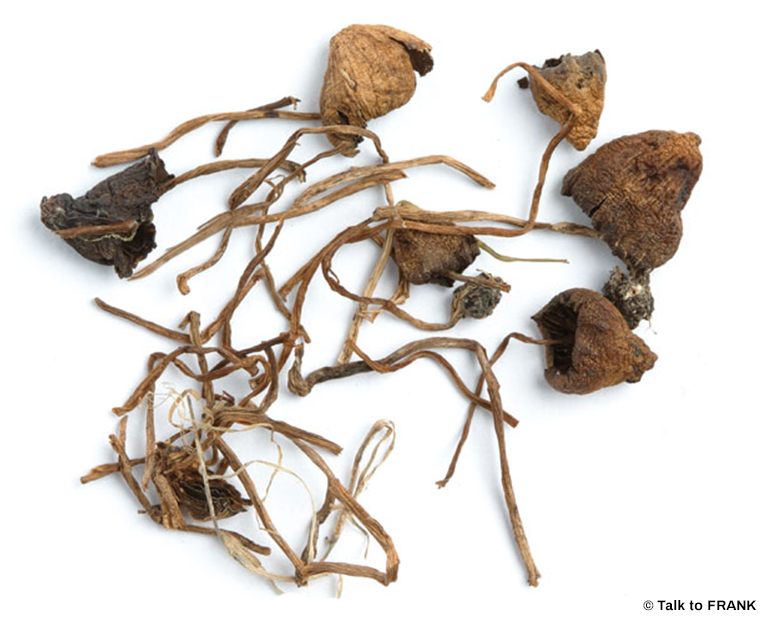
Although drug abuse and dependency can occur at any time throughout an individual's life, substance abuse typically begins in adolescence, a period when the very first signs of mental disorder frequently appear. It is therefore not surprising that comorbid conditions can already be seen amongst youth. Substantial changes in the brain happen throughout adolescence, which might boost vulnerability to substance abuse and the advancement of dependency and other mental illness.
One of the brain locations still maturing during adolescence is the prefrontal cortex the part of the brain that allows us to evaluate situations, make sound decisions, and keep our emotions and desires under control. The fact that this important part of a teen's brain is still a work in development puts them at increased risk for poor decision making (such as trying drugs or continuing abuse).
The more we discover, the better we comprehend the capabilities and vulnerabilities of teens, and the significance of this phase for life-long mental health. The fact that so much change is taking place underneath the surface may be something for moms and dads to remember throughout the ups and downs of teenage years.
Quotes of the total overall expenses of compound abuse in the United States, including performance and health- and crime-related expenses go beyond $600 billion each year. This consists of around $193 billion for illicit drugs, $193 billion for tobacco, and $235 billion for alcohol. As staggering as these numbers are, they do not completely describe the breadth of damaging public health and security implications of drug abuse and dependency, such as household disintegration, loss of employment, failure in school, domestic violence, and kid abuse.
Some Known Incorrect Statements About How To Combat Drug Addiction
It is often incorrectly assumed that drug abusers lack Drug Rehab Facility moral concepts or willpower which they can stop utilizing drugs simply by selecting to alter their habits. In truth, drug addiction is an intricate illness, and giving up takes more than great objectives or a strong will - how does drug addiction affect the family. In fact, since drugs alter the brain in manner ins which foster compulsive drug abuse, quitting is difficult, even for those who are all set to do so.
Treatment is available to assist people counter addiction's effective disruptive impacts. Comparable to other persistent, relapsing diseases, such as diabetes, asthma, or cardiovascular disease, drug addiction can Great site be managed effectively. Drug addiction is an avoidable illness. Research study has actually shown that avoidance programs including families, schools, neighborhoods, and the media are effective in minimizing drug abuse.
For centuries, addiction to alcohol and drugs has actually been viewed as a moral stopping working. The person addicted was considered as lacking in willpower. However while that view is still held by some individuals, a brand-new model for understanding dependency has increased to the forefront in the clinical neighborhood. The reality is that addiction is an illness, and the research study exists to support it.
This advancement has big implications for those who are coping with and fighting against dependency. According to DrugAbuse. gov, "Addiction is a chronic, frequently falling back brain disease that triggers compulsive drug looking for and usage, in spite of hazardous repercussions to the addicted person and to those around him or her." The key here is that the addicted person will continue utilizing even when they see Discover more here the damage their addiction is causing.
What Does How To Beat Drug Addiction Mean?
But addiction is defined by the. The patient will go into remission, but might have numerous relapses before beating the disease totally. And like these diseases, addiction too can be treated and handled. Lots of people who combat the illness model of dependency will make the point that the addicted person picks to begin using drugs or alcohol.
Some people attempt drugs or alcohol and never ever get addicted. Others, however, have a biological or situational predisposition to dependency. Once they start utilizing, the dependency handles a life of its own and is much more difficult to control. Addiction is also thought about an illness since it can trigger changes to the brain.
Every drug, consisting of alcohol, interferes with the reward system in the brain. Regrettably, long-term use can trigger that affect the brain's ability to function. Specifically, the areas of the brain that are tied to making decisions, finding out, keeping in mind, and controlling habits are all impacted. According to a paper released by Ruben D.
Volkow (both from the National Institute on Drug Abuse), "there appear to be intimate relationships in between the circuits disrupted by abused drugs and those that underlie self-discipline [] the time has pertained to acknowledge that the process of addiction deteriorates the exact same neural scaffolds that enable self-control and proper choice making." With addiction wearing down self-control, it's no surprise that it's very tough for a drug abuser to quit by themselves.
What Does What Medication Is Used To Treat Drug Addiction Mean?
When you discover that addiction is an illness, 3 truths end up being clear: When a person loses their life to a drug addiction, somebody certainly states something along the lines of "they made their choice." The idea goes that the addicted individual made the conscious choices to continue their drug addiction and they got what was coming to them.
While there is an element of choice involved, making the right option is so much more difficult for somebody with a dependency. The huge bulk of addicted people are not addicted since they desire to be, but due to the fact that they feel they require the substance. And in most cases, their bodies are so dependent on the compound that they really do.
AboutSome Known Details About Which Of The Following Provides The Clearest Indication Of A Drug Addi
Detoxing from any substance without professional assistance threatens and typically ineffective at breaking the chain of dependency. If your adult daughter or son is voluntarily seeking treatment and has actually not been founded guilty of any criminal offenses prior to going into a Healing Centers of America treatment center, his or her time in https://www.healthcareguys.com/2020/05/09/recovery-support-from-substance-abuse/ rehabilitation will not show up on a background check.
Equal Work Opportunity Commission states that "federal law does not prohibit employers from asking about your criminal history." https://www.viraltrench.com/alcoholism-treatment/ However, there are federal laws that avoid companies from discriminating when using criminal history information. Healing Centers of America is completely devoted to safeguarding the personal privacy of our clients and follows stringent HIPAA guidelines with regard to sharing info about treatment. Once recovery remains in development, it can assist to be surrounded by others who comprehend and who can help the recovering person through the procedure, such as by taking part in self-help groups and other counseling programs. Using these totally free services can help support healing for the long term, making it simpler to manage life after treatment and preserve sobriety into the future.
Watching somebody you enjoy struggle with drug or alcoholism can be quite unpleasant. You dislike to see their drug abuse damage their life. And it injures even worse if they do not wish to look for assistance due to the fact that they can't understand the negative impact of their dependency. So, how do you get somebody into rehabilitation for alcohol or drugs when they don't wish to go themselves?To help your loved one into a rehab program, you need to take certain steps to simplify the process and make it more effective.
Here are some tips on how to get someone into rehabilitation whether or not the individual wishes to go. To help your loved one recover from substance usage condition, you require to recognize the caution indications of alcohol and drug dependency. The early indication of addiction consist of: Being secretiveAvoiding responsibilitiesBorrowing money with no essential reasonsPoor hygieneFrequent state of mind changesBecoming isolatedComing house smelling like smoke or alcoholThese are some general symptoms and signs that could show your loved one is addicted to drugs or alcohol - what cause drug addiction.
What Does The Bible Say About Drug Addiction And Marriage for Beginners
Someone suffering from alcohol addiction might get home smelling of alcohol, however a person who is abusing other drugs may not demonstrate that specific indication. If your liked one is using drug or other stimulants, there might not be any external signs. However, they might show uncharacteristic hyperactivity or the capability to opt for extended periods without sleep. how to help someone with drug addiction and depression.
Unless you see the needle marks on their arms, though, you might not have the ability to inform your liked one is abusing an illicit compound. The point here isn't that you will not be able to see the indications and symptoms of compound abuse in your enjoyed ones. It's that you may require to look a little closer to figure out something is wrong.
Compound abuse can trigger problems in your home and even result in task loss or failure at school. If you notice these symptoms, you need to take prompt action. Don't wait up until your enjoyed one displays dangerous, violent or lethal behavior such as dui. After you've seen indications of dependency in your loved one, discover if they wish to go to rehab.
505.4673. If they aren't prepared for rehab, you should employ an interventionist. An expert interventionist knows how to get the most persistent drug user into rehabilitation. Considering that they're usually emotionally detached from the person, they make the task a lot easier. The specific steps to dependency recovery differ from individual to individual.
The Best Guide To How Does Drug Addiction Occur
So, it is necessary to know the various types of treatment offered and select the one finest matched for your enjoyed one. You can discover the different types of treatment on our site and learn more about the types of aftercare, household therapy and support groups developed to fulfill your loved one's requirements.
At Entrance, we use nine core treatment approaches to ensure we address the drug addiction however also deal with the co-occurring factors that led to the dependency in the first place. Our treatment facility provides whatever needed to deal with withdrawal and detox signs, and we have a total group of doctor to manage every element of addiction healing.
When you're considering how to get somebody into rehabilitation, you should believe through how to get the needed resources, finances and logistics in order. At this stage, you should likewise discuss your medical insurance choices. When you contact us to schedule a visit with our entry assistance personnel, we'll assist you assess numerous insurance alternatives that will meet your loved one's needs.
You might find yourself accountable for someAn intervention is the most efficient way to face someone with a compound use disorder. When you create your intervention plan, you should welcome the person's close pals and household members. Dealing with an interventionist will also make the process much smoother and effective.
What Are The Physical Signs Of Drug Addiction - An Overview
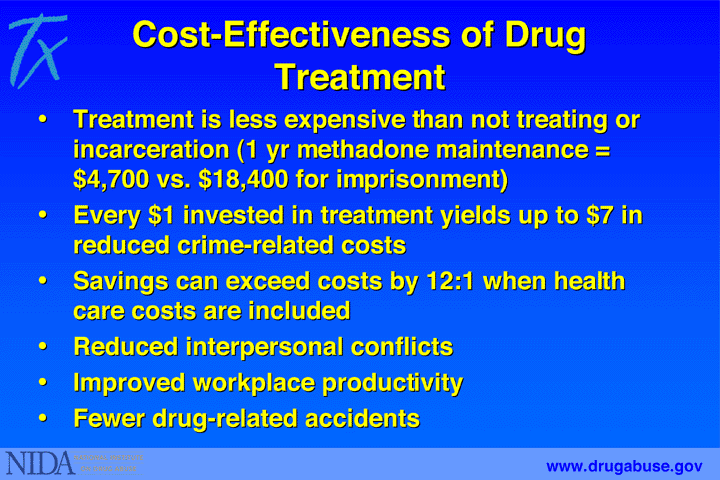
Write whatever down so you can deliver your message calmly and effectively. Avoid throwing blame at your enjoyed one. Also, plan to take the individual directly into rehabilitation instantly after they agree to treatment because that's the finest time to do so. Interventions can be frightening and psychological events. The goal isn't to get your liked one to concur to pursue treatment under pressure that is not an effective method for how to get an addict into rehab.
Let them understand you're there for them as they start their path to healing. Pick a rehabilitation facility where you can offer all the support and love you can during each phase of treatment. Recovery from a drug abuse problem is one of the hardest things your loved one will ever do.
Make certain you are there for them as much as possible. You're going to end up being a structure for them, a rock they can utilize to support their recovery (what is the difference between drug abuse and drug addiction). It sounds clich, but having a strong support system is essential to the success of any recovery journey. At Gateway, our therapists work in partnership with relative to ensure each client has all the support they require to remain sober and delight in long-lasting healing.
505.4673. We have actually been providing life-saving dependency treatment for over 50 years. To learn more about our drug rehabilitation programs, send us a message through our contact page today.
Not known Factual Statements About Drug Addiction What Is It
Jennifer Melamed, MD The core signs of drug dependency are a powerful and mysterious obsession and a craving to utilize a drug. Obsessions can trigger you to continue using a drug even when you don't want to, and cravings can trigger you to start using a drug once again after all your best shots to give up.
New medications in the field of addiction medication are supplying us with ways to help our clients stay alcohol and drug totally free. Therapy has actually constantly included a combination of mental and social healing. We now have a growing number of medicinal treatments help to add tonot replacethe basic treatments. The type of addiction medication utilized varies according to which substance a client is addicted.
g., aggressive throwing up) when an individual drinks even a tiny amount of alcohol. This is a kind of aversion therapy. A client should take disulfiram daily up until they have the ability to develop permanent self-control. Naltrexone (Revia) is normally used to reverse an opiate overdose when utilized intravenously, however when taken orally, it might reduce the craving for alcohol.
